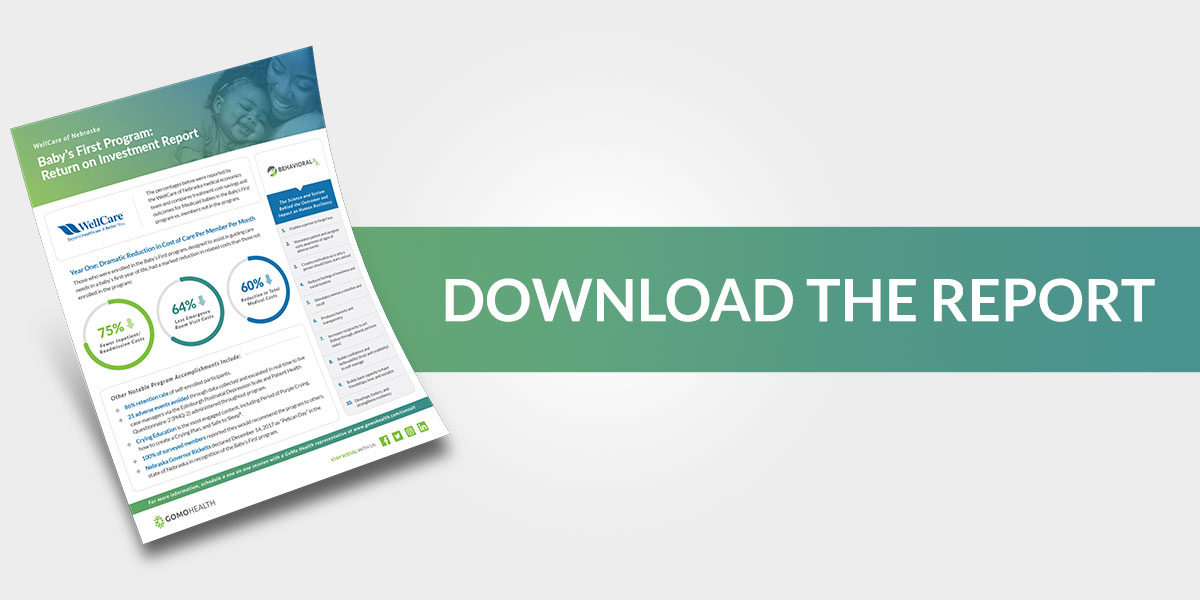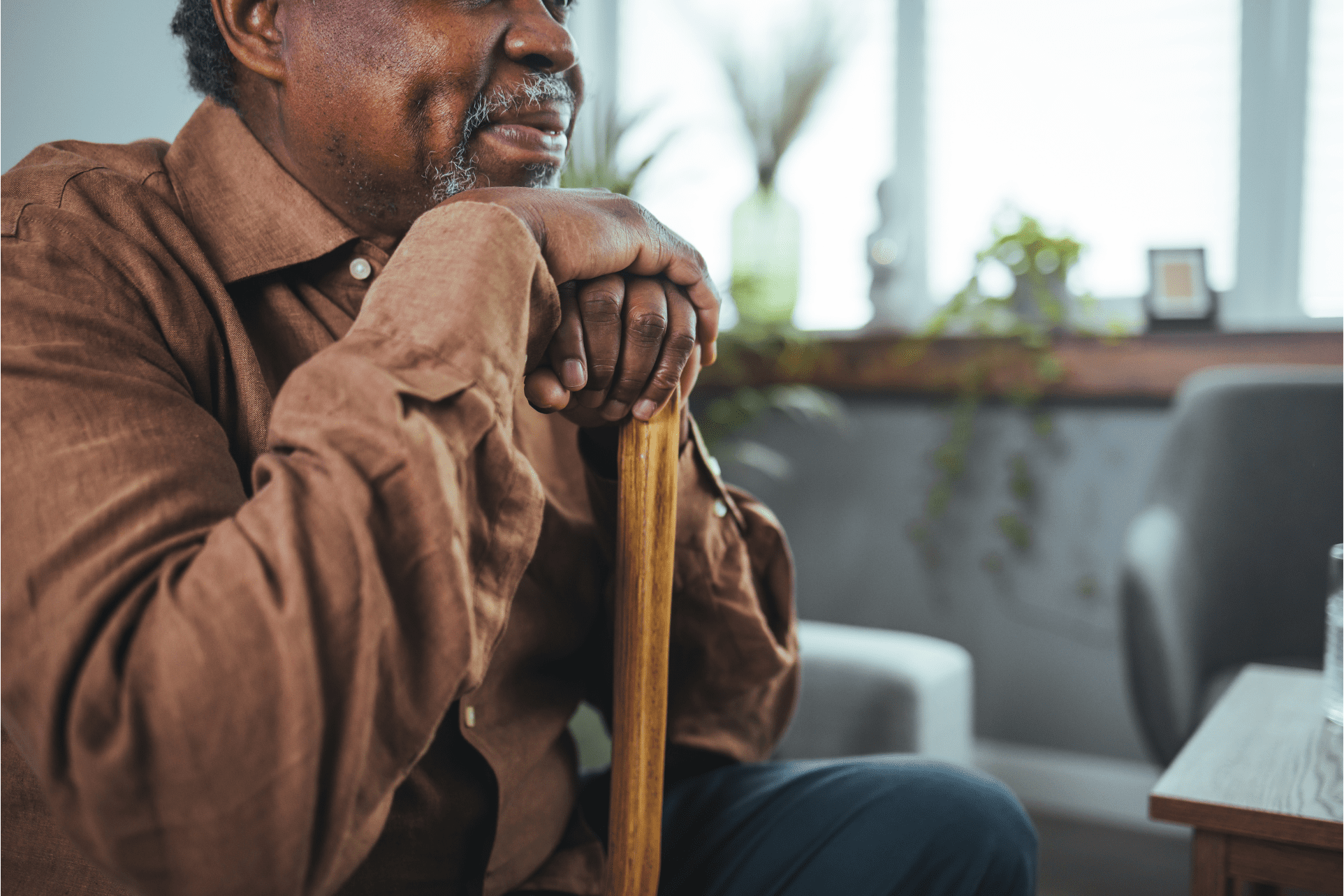The Reality of Post-Partum Depression
 By Steve Lazoritz, MD, Medical Director, GoMo Health
By Steve Lazoritz, MD, Medical Director, GoMo Health
Having been a pediatrician for more than 40 years, I thought that I knew everything that there was to know about postpartum depression. I had seen the gamut from new mothers with “the blues” to mothers who were at the edge of despair. I had witnessed neglected, abused, abandoned and murdered infants — all the secondary victims of postpartum depression. From my vantage point, working with these women was exhausting. Pharmacological treatment effect was slow, and many of them required constant support, encouragement and monitoring of their status and their infant’s wellbeing. I did all I could to help, and I still felt the uphill climb every day, with windows of hope shining through when patients finally began to see the light and joy that awaited them, accompanied by their baby.
Yes, I knew everything about postpartum depression. Until last week.
For two years I had the opportunity to work with an incredible young nurse. She is bright, knowledgeable, experienced and wise beyond her years. Her empathy and compassion were awe inspiring, and she had a deep, sincere concern for the wellbeing of women and babies. To briefly sum her up, she indeed had her act together.
I recently reached out to her to see how she and her newborn were doing. In our casual, catch-up conversation, I mentioned to her that I was writing an article on postpartum depression. She quietly responded that she would send me something about it — feeling like I knew everything there was to know on the topic, I was curious as to what she might offer. This is the email that I received from her a few days later:
“It crept in like a slowly ascending fog. I didn’t even realize it at first between the exhaustion from getting up every few hours to change a diaper or to feed my daughter and struggling with the aftermath of a traumatic delivery.
At first, it seemed like the “normal baby blues” that I had heard about. Since it was my first child, I didn’t really know what to expect and how the typical hormonal changes would affect me.
As a nurse, I knew about postpartum depression and even knew I was at a higher risk of it due to my history of bouts of depression. To others, even my husband, I seemed like I was doing just fine. Everything I was experiencing was easily explainable and I was still functioning.
That’s the tricky thing about the spectrum of postpartum depression. Unlike other forms of depression, with postpartum many moms are falsely reassured by the fact that they are still functioning. I was still getting up to change and feed my daughter every 3 hours. I was still able to put food on the table (albeit, it wasn’t anything fancy), I was even able to squeeze in a shower every now and again.
But inside, my brain was waging a vicious war on itself. I remember the first time I saw the moment I would die – driving through an intersection, hands at 10 and 2. I look to the left out the driver’s side window in just enough time to see the grill of a semi slam into me. This vision felt so real. I could smell the familiar scent of my car. I could see the details of my car, my hands, the intersection, even the color of the semi. And I could feel the pain in my shoulder and hands from the impact.
Over and over this silent movie played on the screen of my mind. Over and over, day in and day out, it slowly took over the hours of my days. So much so that I started to pull away from my daughter. I was afraid that she would bond too much with me and then I would be gone. So much so that I wrote a goodbye letter to my husband. Apologizing for having to leave him with our newborn daughter. So much so, that I laid out the details of my funeral because I knew he wouldn’t have time to think about such things since he would be an only parent. So much so that I recorded myself singing my daughters favorite songs, the ones that calmed her down every night before bed. I knew my husband would need them when I was gone.
Over and over these images played in my mind. Day in and day out. It felt like a runaway train that I could not stop. But I kept getting up every day attempting to make the most of whatever time I had left with my daughter, attempting to be present and engaged with my husband.
I went to all the doctors’ appointments for both my daughter and I, no one noticed.
It wasn’t until I got a random call from a very dear mentor of mine asking for a visit that I found relief. She came into my home, sat on my couch, held my daughter, and without prompt told me her own journey. It was the first time since having my daughter that I didn’t feel alone. The first time that I didn’t feel like a bad mom and a failure of a wife. The first time that I thought “maybe this too shall pass.” The first time that I realized what it was I was actually struggling with. It wasn’t me. I wasn’t bad or even crazy. I had postpartum depression and I needed help.
I share this story because I know how it feels to walk this journey. I know how slowly it creeps in and how important it is to educate yourself on signs and symptoms, so you know when to reach out for help. Most importantly, I choose to share my story because I feel passionately about empowering other women and breaking the stigma that keeps so many others from seeking help.”
I had no idea! Here I thought I knew everything about postpartum depression but reading the innermost thoughts and fears of someone so close to me brought it to a reality I hadn’t previously grasped. I never imagined the true depths of despair that victims of postpartum depression suffered. The words of the author William Stryron immediately came to mind; “The pain of severe depression is quite unimaginable to those who have not suffered it.” I knew nothing about postpartum depression. Tears came to my eyes as I read about her suffering.
I am still trying to comprehend her message, but clearly we must try hard to understand the agony and despair that women undergo, and develop innovative ways to help them, and teach them to identify signs and feel comfortable seeking help – before they, or anyone else, is planning their funeral.







Find Us Online